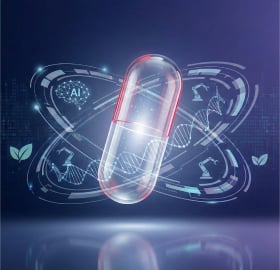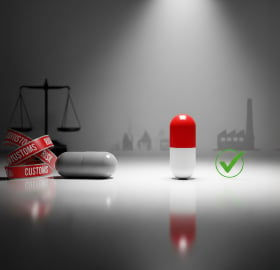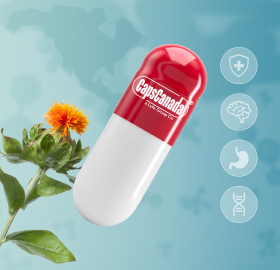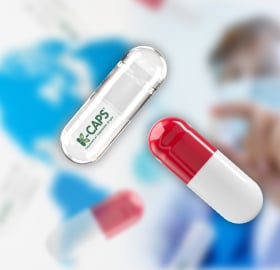With so much media buzz currently swirling around ChatGPT, the generative artificial intelligence (AI) chatbot released in November 2022 that is already being used by millions of people, AI suddenly seems to be on everyone’s mind. The reality, though, is that long before ChatGPT was released, the pharmaceutical and nutraceutical industries were already putting other AI platforms and capabilities to work.
How can AI benefit the pharmaceutical and nutraceutical industries? Here are some of the many ways that companies are already benefiting from AI technology…
Accelerating Drug Discovery and Development with Artificial Intelligence
For many, the biggest area of excitement relates to the development of AI platforms that can make drug discovery and drug development faster and smarter.
AI is particularly well suited for data mining. In the pharmaceutical industry, new AI-powered drug discovery platforms are being used to mine data to identify novel biological targets as well as to create novel molecules with drug-like properties. In fact, it is estimated that over 250 companies are currently using AI in the drug discovery process, and a number of medicines that were designed by AI are now reaching human clinical trials. These include drugs designed to address inflammatory diseases, amyotrophic lateral sclerosis (ALS) and lymph cancers.
Similarly, in the nutraceutical industry, AI is being used to discover bioactive dietary ingredients. For instance, AI platforms are currently being used to discover unique peptides as well as bioactives in nature that can be scaled for use in nutraceutical products.
In some ways, the use of AI can radically change the entire drug development process. The traditional path starts with animal testing and then moves on to human clinical trials. With AI you can start with a detailed analysis and virtual screening based on human data and human models. Because this analysis can help predict drug efficacy as well as likely side effects, live animal and/or human testing is then only done once this hurdle is passed.
Needless to say, the potential benefits of using AI for drug discovery and development are significant. These include:
- • Discover treatments that would not otherwise be discovered – The idea here is that AI can quickly go through enormous data troves to help identify potential drugs. This data includes animal studies, patient information, the structures of chemical compounds, information about currently available treatments and more. Machine learning can be used to spot potential treatments that, to date, humans have overlooked.
• Glean additional insights from the data produced – Each stage of drug development produces a tremendous amount of data. Machine learning can be used to comb through and analyze these huge data sets to potentially discover additional insights.
• Speed development time – Platforms can combine AI with generative biology and chemistry to quickly assess a compound’s potential safety and efficacy in multiple preclinical models.
• Reduce the number of costly failures – Because potential safety and efficacy can be modeled early in the development process, many products that would have been approved to move on to clinical trials under a traditional drug development model can be pulled from consideration before they get to this costly and time-consuming phase. Resources can then be focused on other, more promising options. Determining which treatments should not be pursued is particularly important for the pharmaceutical industry, which must pass significant regulatory hurdles before bringing a product to market.
Using AI to Create and Manage Regulatory Documentation in Drug Development
Drug development involves producing and managing a massive amount of documents and data. AI can be used to generate many if not all of the documents, reports, tables, etc. that are created and/or required at various stages of the drug life cycle, including during the development, testing, manufacturing and prescription processes. In fact, by reducing human error in the production of these documents – many of which may then be relied upon during later stages of the drug development process – AI can improve quality control.
Machine learning can also be used to help clinicians predict what queries regulators are likely to have regarding a drug that is under development. These questions can then be proactively addressed in the regulatory submissions, potentially saving weeks or months of time in the regulatory approval process.
AI-Driven Optimization of Pharmaceutical and Nutraceutical Manufacturing
In the past decade or so, manufacturing technology has undergone substantial changes. From seamless interconnection of machines to the automation and optimization of processes, we are now in the era of smart manufacturing. AI, of course, is playing an important role in this. AI is being used to:
- • Streamline processes
- • Improve quality control
- • Optimize product lines
- • Increase manufacturing flexibility
- • Improve manufacturing flow
- • Improve productivity
- • Reduce downtime
- • Provide intelligent and contextual analytics
All of this, of course, decreases costs. In addition, the increased manufacturing flexibility that AI can enable is vitally important to pharmaceutical companies that wish to produce personalized treatments and small-batch, specialized therapeutics.
Enhancing Sustainability in Pharmaceutical Manufacturing with AI Solutions
A key benefit of using AI to monitor and optimize manufacturing processes is how this can impact sustainability. For example, you can…
- • Reduce waste by using predictive analytics to monitor quality parameters and make real-time adjustments as needed.
• Reduce unscheduled downtime by using AI and machine learning to automatically identify and address equipment-related issues, as well as provide proactive alerts that critical equipment requires maintenance.
Strengthening Pharmaceutical and Nutraceutical Supply Chains Through AI
For the past few years the nutraceutical industry and pharmaceutical industry have both experienced significant supply chain challenges. In addition to addressing global supply chain issues, it is clear that every organization also needs to focus on supply chain optimization for the components of their specific supply chains.
AI is very useful for enhancing supply chain resilience because it excels at analyzing large data sets in order to spot relevant patterns. For supply chain optimization purposes, this can mean using AI to provide warnings about supply chain events that appear likely to happen in the coming months. This enables the organization to take appropriate action to mitigate any undesired impacts.
Within the supply chain, AI is also being used to automate many previously manual tasks and to combine with Internet of Things (IoT) devices to monitor, track and control shipments. This improves efficiency and reduces costs.
Conclusion
While some of these AI and machine learning tools and capabilities are still in their infancy, others have been in place for some time… and others not listed here are undoubtedly under development. With so many potential benefits, the future of AI in both the pharmaceutical industry and the nutraceutical industry looks very bright!














